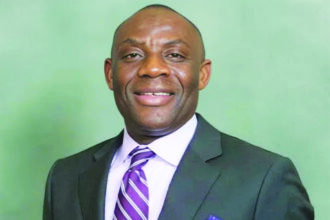The International Society of Substance Use Professionals (ISSUP) have urged Nigerian universities to strengthen fight against drug addiction by establishing addiction-related programmes to train relevant manpower for prevention and treatment of substance abuse.
The President of the Nigerian Chapter of ISSUP, Dr Martin Agwogie, in his welcome remarks at the 5th National Conference of the Nigerian Chapter of the International Society of Substance Use Professionals, ISSUP, said to achieve evidence-based drug demand reduction in the country and ensure effective drug control stakeholders must closely collaborate.
The theme of the conference is “The Implementation of Addiction Science Courses in Nigeria Tertiary Educational Institutions: Prospects and Challenges.”
Agwogie noted that drug control is the responsibility of everyone even though government agencies are at the vanguard of prevention and control.
He called on tertiary institutions to come on board and provide training for qualified personnel to strengthen the fight against drug addiction.
The ISSUP president added that if the country has well trained professionals, their intervention will be evidence-based and more effective in addressing the scourge of drug abuse.
“We strongly believe that effective drug control can only be achieved through collaboration among stakeholders. These have yielded significant results as ISSUP has become one of the rallying points for stakeholders in drug control in Nigeria, particularly in drug demand reduction.
“One of the results of these is the broad representation of stakeholders in our events, including this conference. Our commitment to collaboration is also hinged on innovations in the field of drug demand reduction with understanding that everyone and setting, including the higher institutions of learning has a role to play in effective drug control.” He said
Also, a Consultant Psychiatrist with University of Jos, Prof Moses Audu, lamented that only Nnamdi Azikiwe University, Awka and Niger Delta University currently offer programmes in addiction science in the country.
Audu spoke in Abuja noted that a decade ago, most addiction issues were treated as a course in medicine but there is now a paradigm shift and aditology has become a field of study.
The professor of psychiatry, disclosed that a curriculum on addiction has been developed for the standardisation of the profession and practice in Nigeria, calling on more universities in the country to initiate programmes on the field.
While stressing Nigeria’s need for certified professionals in the field of addiction, he advocated for evidence-based treatment for substance abuse as well as clinical evaluation and supervision.
He underscored the problem of drug abuse in Nigeria, stating that the country has a major problem at hand, students are dropping out of school, and if relevant professionals are not trained and deployed, the situation could worsen.
Audu emphasized the need for local and international collaboration to achieve evidence based prevention and treatment.
Also speaking, the Country Representative of the United Nations Office on Drugs and Crime, UNODC, Dr Oliver Stolpe, stressed the importance of training academics in the field of addiction to equip professionals with skills to intervene.
Represented by Dr. Ibanga Akanidomo, he said Nigeria has a big problem of alcohol consumption as well as opioid consumption in the north and cannabis consumption in the south.
He however noted that Nigeria at the government level, is beginning to see the need to have a programme that will address the problem of addiction, adding that there is also the need for funding of programmes that will address the problem.
According to him, universities have the onerous task of playing the crucial role of how the country responds to the drug epidemic ravaging its youth, adding that it is the academicians that will provide the evidence to enhance the response.
The Acting Executive Secretary of National Universities Commission, NUC, Mr Chris Maiyaki, noted that the conference was a wake-up call for relevant stakeholders to collaborate in dealing with the issue of drug addiction.
Represented by the Acting Director, Directorate of Student Support Services, Mrs Rita Okojo, he expressed NUC’s commitment to review the university academic programmes to address society’s challenges.
Maiyaki added that for the first time, the newly-introduced Core Curriculum Minimum Academic Standards, CCMAS, allows individual universities 30 per cent of leverage to initiate their own programmes.
The NUC boss disclosed that the commission is about to review its statement on student support services to curb drug use among students.
Meanwhile, the Chief Executive Officer, National Drug Law Enforcement Agency(NDLEA), Rtd Brigadier General, Buba Marwa said the Agency would continue to collaborate with organisations or individuals willing to support the agency in its anti-drug campaign to win the war against drug abuse in Nigeria.
Marwa said the agency had implemented the school based implementation programme while appealing to governors that have no state drug control committees as a matter of urgency to establish it to complement government’s effort to fight the menace as this remains the major help to people indulging in various social vices that poses threats to the peace and security of the society.
READ ALSO FROM NIGERIAN TRIBUNE








